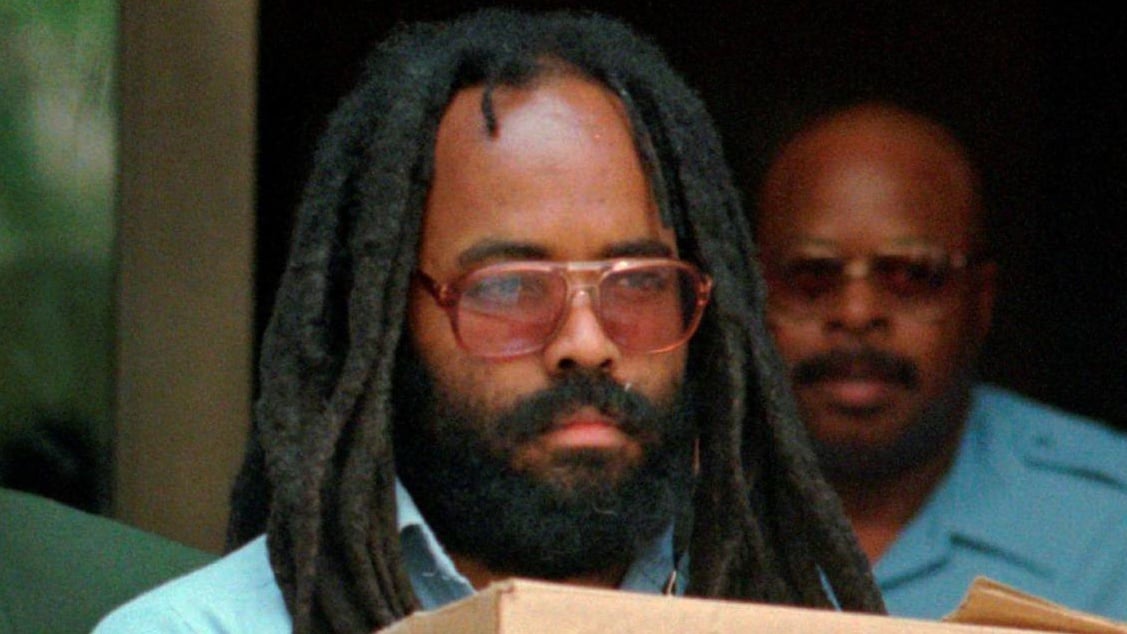[ad_1]
Mumia Abu-Jamal, who was convicted in the killing of a police officer more than three decades ago, will have his day in court — again and was granted a partial appeals request, the Philadelphia Inquirer reports.
Philadelphia Common Pleas Court judge Leon Tucker ruled that Abu-Jamal can re-argue his appeal case due to a former judge’s alleged refusal to recuse himself from the case because of his earlier role as a district attorney during Abu-Jamal’s appeal.
READ MORE: Black door-to-door salesman says cop aimed weapon at him before he could pitch his product
Then-Chief Justice Ronald D. Castille reportedly was the District Attorney during the time Abu-Jamal was seeking an appeal. Abu-Jamal’s team argued that he held a bias toward him. However, Judge Tucker denied Abu-Jamal’s claim that Castille had “personal significant involvement” in his case while Castille was in the District Attorney’s Office. He denied it for lack of evidence.
Dustin Slaughter, spokesperson for District Attorney Larry Krasner, said in a statement that “we are aware of Judge Tucker’s opinion and are currently reviewing it. As such, we have no further comment at this time.”
An attorney for Abu-Jamal, Judith L. Ritter, said in a statement that “Judge Tucker recognized the unconstitutional bias involved with Justice Castille’s sitting on the prior post-conviction appeals, and the need for a new appeal untainted by such bias. This was a straightforward application of federal and Pennsylvania law requiring cases to be decided by judges whose impartiality cannot reasonably be questioned.”
READ MORE: ‘Overjoyed’ Jemele Hill ends rollercoaster year with a ring on it
This win comes after Abu-Jamal’s team earlier this year worked to get a hold of a document that would prove that former state Supreme Court Justice Ronald D. Castille violated Abu-Jamal’s constitutional rights when he did not recuse himself from appeal reviews.
Tucker wrote in his opinion that under the Williams v. Pennsylvania decision, “if a judge served as a prosecutor and then the judge, there is no separate analysis or determination required by the court, there is a finding of automatic bias and a due process violation.”
He later wrote: “The public expectation of impartial justice is necessary. The slightest appearance of bias or lack of impartiality undermines the entire judiciary, hence the mandate of not only propriety, but the appearance of propriety.”
Tucker added: “Re-argument before the Pennsylvania Supreme Court would be best to perform the heart of the function of the appearance of justice. Argument only on the past submitted briefs will avoid the unacceptable danger of having the slightest appearance of impropriety.”
The 64-year-old journalist and former Black Panther whose activism is well documented has been incarcerated since 1981 for the murder of Philadelphia police officer Daniel Faulkner. He sat on death row for 30 years until his sentence was commuted to life imprisonment without parole in 2011 after numerous appeals questioning the quality of his trial, the mishandling of evidence and racial bias from the judge and jury. Supporters seriously question if he had anything to do with the death of Faulkner.
[ad_2]
Source link

